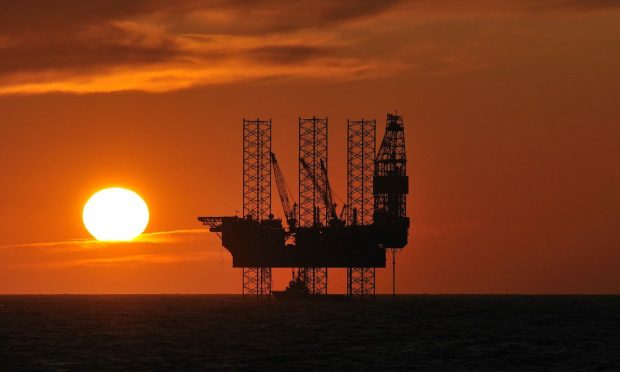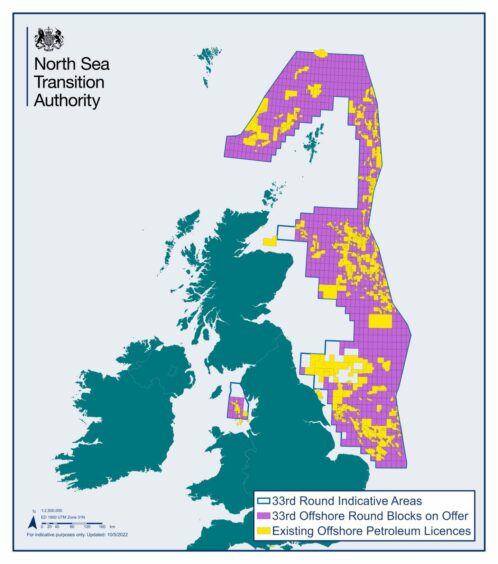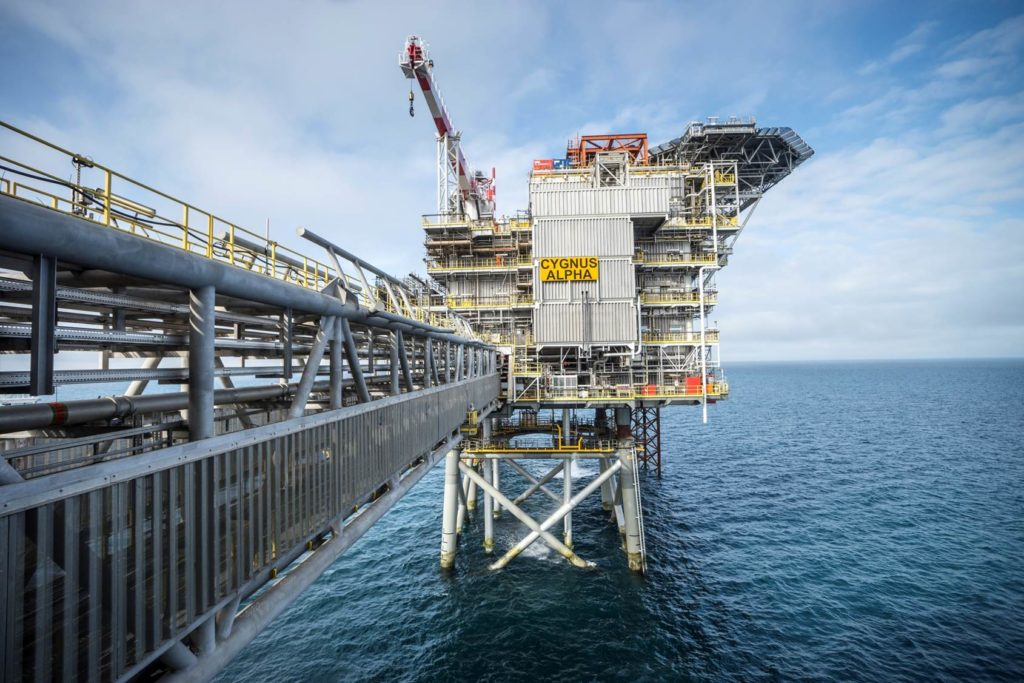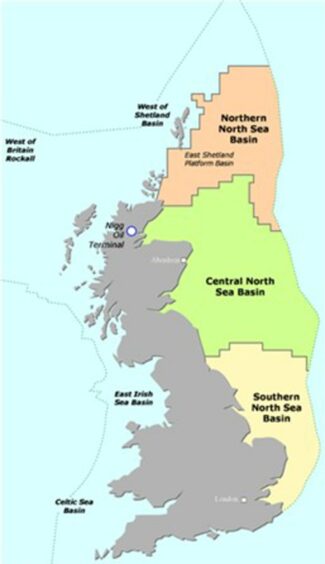The North Sea Transition Authority (NSTA) has fired the starting pistol on the 33rd oil and gas licensing round, the UK’s first since 2019.
A total of 898 blocks and part-blocks of acreage are up for grabs.
Healthy take-up may mean more than 100 licences being dished out.
Energy companies can bid for exclusive permits to explore and potentially recover any oil or gas they uncover.
Senior figures in the industry say the process will boost domestic gas supplies, sustain the offshore sector and shore up energy security.
Priority clusters
To encourage production as swiftly as possible and ease UK energy woes, the industry regulator has identified four priority clusters in the southern North Sea, an area rich in gas.
It is hoped these areas can be brought into production and start helping to reduce household energy bills as soon as possible.
Business and Energy Secretary Jacob Rees-Mogg said: “Putin’s illegal invasion of Ukraine means it is now more important than ever that we make the most of sovereign energy resources, strengthening our energy security now and into the future.
“Ensuring our energy independence means exploiting the full potential of our North Sea assets to boost domestic production, recognising that producing gas in the UK has a lower carbon footprint than importing from abroad.
“That is why we welcome the launch of the NSTA’s new licensing round, which will help support highly skilled jobs across the UK’s energy industry, boosting both our energy security and our economy.”
All sectors open for business
Acreage west of Shetland, as well as the northern, central and southern North Sea, as well as the East Irish Sea is available to prospective bidders.
NSTA is publishing data packs, including summaries of key prospects and discoveries, with the aim of stimulating exploration and encouraging new opportunities.
The 33rd licensing round follows the publication of a climate compatibility checkpoint.
It adds another level of scrutiny to new oil and gas licences, setting out hurdles they must clear in order to receive approval.
Companies have until January 12 to submit their licensing round bids, with results expected in late spring of 2023.
Each stage that follows – exploration, development and production – will be subject to further consents from NSTA and the Offshore Petroleum Regulator for Environment and Decommissioning.
Ensuring our energy independence means exploiting the full potential of our North Sea assets to boost domestic production.”
Jacob Rees-Mogg, business and energy secretary.
NSTA chief executive Andy Samuel said the regulator was “working closely with industry and government to meet UK needs, with North Sea supplies produced as cleanly as possible”.
He added: “The UK is forecast to continue importing natural gas as we transition to a fully renewables system.
“This licensing round includes gas discoveries in the southern North Sea which can be rapidly tied back to existing infrastructure.”
All developments will undergo environmental and emissions assessments.
Mr Samuel added: “As with good safety leadership, good environmental performance is good business.
“Security of supply and net-zero should not be in conflict. The industry has committed to halving upstream emissions by 2030 and investing heavily in electrification, carbon storage and hydrogen.”
Licensing round delay
The last licensing round was launched in July 2019, with the results unveiled in September 2020. A total of 113 licences were awarded to 65 companies.
Subsequent rounds were put on hold, while consultations on the environmental impacts of further oil and gas exploration were carried out.
That delay, plus other factors such as the pandemic, led to just five exploration wells being drilled in 2021 – the lowest number ever, according to trade body Offshore Energies UK.
Fossil fuel debate
Westminster has made scaling up North Sea oil and gas production a key pillar of its strategy to turn the UK into a net energy exporter by 2040.
But that approach has drawn harsh criticism from environmental groups.
Greenpeace UK energy transition campaigner Philip Evans said: “Supporting the oil and gas giants profiteering from the energy and climate crises ignores the speedy solutions that are best for the economy, for lowering bills and for the climate.”






Conversation